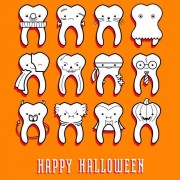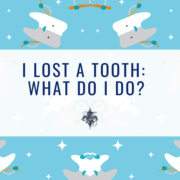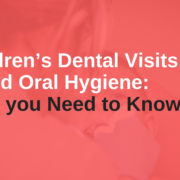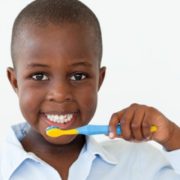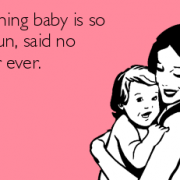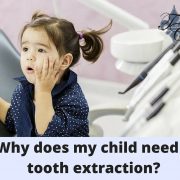Halloween Dental Tips for Children: Prevent Cavities This Spooky Season
What’s more frightening than ghouls, goblins, and monsters on Halloween night? For parents, it’s the cavities that can sneak into your child’s mouth disguised as brightly colored candy.
As much as you want your children to enjoy Halloween, it’s important to protect their dental health and prevent tooth decay. Luckily, with a few creative strategies, your kids can still enjoy the holiday without putting their teeth at risk. Here are our top tips from Tim Chauvin DDS & Associates.
Understanding Tooth Decay: Good vs. Bad Bacteria
Tooth decay happens when the bad bacteria in your child’s mouth combine with sugar to form acids that attack tooth enamel. Meanwhile, the good bacteria work with fluoride in toothpaste and water to keep teeth healthy and cavity-free.
Explaining this in a fun way can help kids understand the importance of brushing and flossing. For example, you could describe brushing as a superhero mission: your child’s toothbrush, fluoride, and saliva team up to defeat the villainous bacteria that cause cavities.
Fun Compromises for Halloween Treats
Many families are finding creative ways to enjoy Halloween without overloading on sugar:
-
Alternative treats: small toys, stickers, coupons, or homemade movie tickets can be handed out instead of candy.
-
Candy for cash: children trade candy for money or other rewards.
-
Neighborhood trick-or-treat trail: plan a route with healthier snack options and fun prizes.
If you decide to let your child enjoy candy the traditional way, moderation is key. Spread out treats over several days or weeks, and make sure your child brushes after eating.
Reversing Early Tooth Decay
The National Institute of Dental and Craniofacial Research (NIDCR) notes that early signs of tooth decay can often be reversed. To protect your child’s teeth:
-
Brush with fluoridated toothpaste at least twice daily.
-
Floss once a day.
-
Limit sugary and acidic foods, including soda, sweet tea, fruit juice, and processed snacks.
-
Ask your dentist about protective coatings.
Handling Broken, Chipped, or Knocked-Out Teeth
Halloween mishaps can happen. If your child chips, breaks, or knocks out a tooth:
-
Take them to the dentist immediately, even if it’s a baby tooth.
-
If you can, place the broken or knocked-out tooth in a glass of milk.
-
Handle the tooth by the crown, not the root.
Routine Dental Care
Regular dental visits are essential. Most children should see the dentist every six months, and toothbrushes should be replaced every three months or sooner if worn.
Here are some things to keep in mind:
- Teach children about the battle between good and bad bacteria in their mouths.
-
Offer alternative treats or plan creative ways to celebrate Halloween.
-
Allow candy in moderation, and encourage brushing afterward.
-
Early tooth decay can often be reversed with proper care and limited sugar intake.
-
Take your child to the dentist immediately if a tooth is chipped, broken, or knocked out.
-
Maintain regular dental checkups and replace toothbrushes as needed.
Let Tim Chauvin DDS & Associates Protect Your Child’s Teeth This Halloween
For more tips on children’s dental health, preventing cavities, or to schedule a teeth cleaning for your child, contact Dr. Tim Chauvin DDS & Associates in Lafayette, LA today!
Dr. Chauvin and his team wish you and your family a happy, safe, and frightfully fun Halloween.

